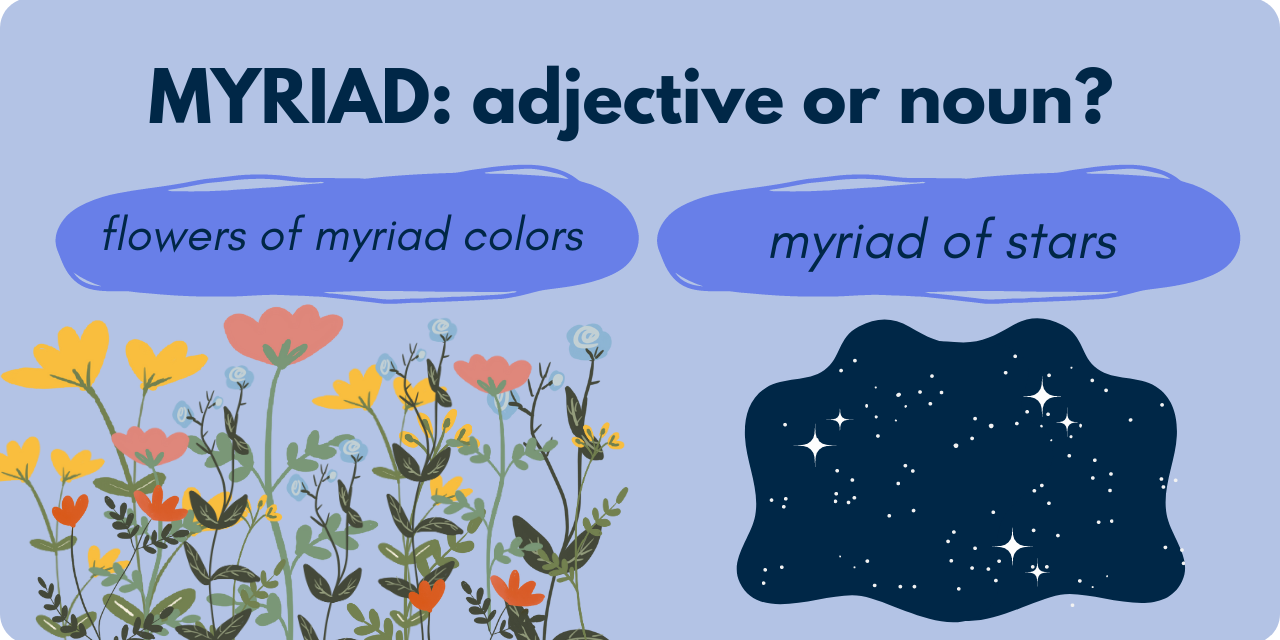There are two main ways to use the word: as an adjective followed by a noun (myriad reasons) and as a noun itself (a myriad of reasons).

While either form is considered acceptable by major dictionaries, the AP style frowns on the use of the noun form.
Every day writers and speakers face the perils of navigating the English language. While some have given up the fight and fire from the hip, others make an effort to improve their diction and follow conventional rules.
As you are here, I can assume that you are one of the latter. I applaud you.
The problem with English is that the language borrows shamelessly from other languages. Sometimes, it adapts to standard usage rules; other times, it adopts the forms from the original language, wreaking havoc for English language learners and native speakers alike.
At other times, general usage of a word changes, and the standard conventions follow suit or at least embrace this new usage as an acceptable alternative.
Many people are unsure how to use the word myriad properly. It’s a fun word and an excellent synonym for “many.” Here’s what you need to know to make proper use of the word.
What Does Myriad Mean?
The root of the etymology comes through the evolution of the word to the Greek form “myrias,” which means “ten thousand.” Therefore, a Greek soldier, reporting on an invasion force, might have used it in this manner:
There are over a myriad of Spartans at the gates.
However, that specific number has been substituted for a more general estimate in English, referring to a large quantity, number, or variety.
How Is “Myriad” Used?
Proper usage of myriad is a matter of fiery debate. There are two major camps, those that use the word as an adjective and those that prefer to use it as a noun.
Myriad as an Adjective
When used as an adjective, the word describes a noun. That means that it explains situations in which there are many somethings.
For example:
The gorgeous flowers in the field were myriad colors.
In other words, there are a wide variety of different colored flowers, although not necessarily ten thousand since the word no longer shares that meaning (although you can use it to indicate such an impressive quantity).
I lay on my back, enjoying the panorama of myriad stars winking overhead.
In this case, there may well be over ten thousand stars overhead. If not, this is still acceptable since the word now means large quantities.
Greg stared at the myriad toys littering his room and sighed; it was going to take forever to clean his room.
Myriad as a Noun
While the word’s meaning is still the same, using myriad as a noun requires a different construction, most commonly phrased to say there are a large number of somethings.
Here are some instances of this usage:
Wylia had a myriad of job offers after she sent out her applications.
The meaning is still the same: she received many, many offers. The form is different because now the word functions as a different part of speech.
A myriad of people showed up in front of the government building to protest the new bill proposal.
There aren’t just a few people holding signs here; this is a significant turnout.
When the clouds parted, a myriad of stars was visible in the night sky.
Note: when used in this way, you may also see a myriad stars instead. However, when I wrote that, my grammar-check disapproved of it.
It is, however, acceptable to make the word plural and say myriads of stars.
What is the Proper Usage of “Myriad?”
Both uses are so common that either usage is generally acceptable. To wit, you can use whichever construction makes you happy!
However, a few critical caveats may influence which form you choose.
While most official writing styles do not seem to mind whether you use myriad as an adjective or a noun, the AP (American Press) style expects you to use the adjective form. This is a rare instance where an official source designates a clear preference.
Otherwise, both forms have appeared in well-respected classic literature and bibles, so there are many important advocates in each camp.
If you use the noun form (a myriad of), you may find yourself more likely to face the grammar police; however, this is ironic because that form’s earliest recorded appearance was 200 years earlier than the adjective form!
You just can’t please some people.






